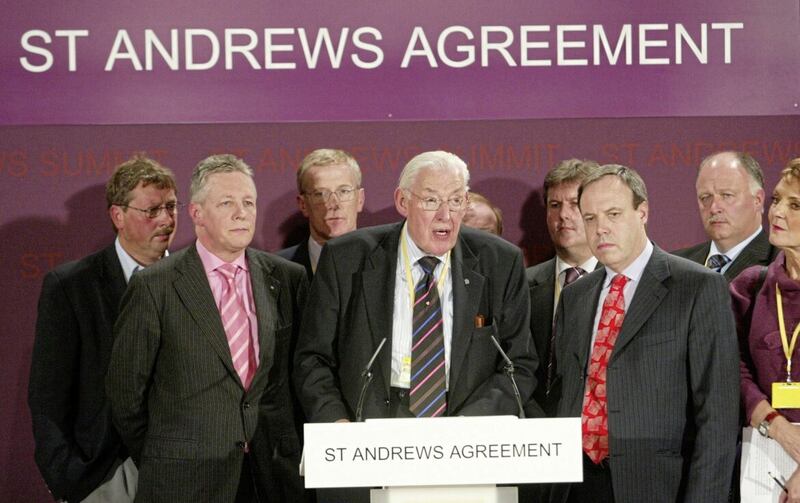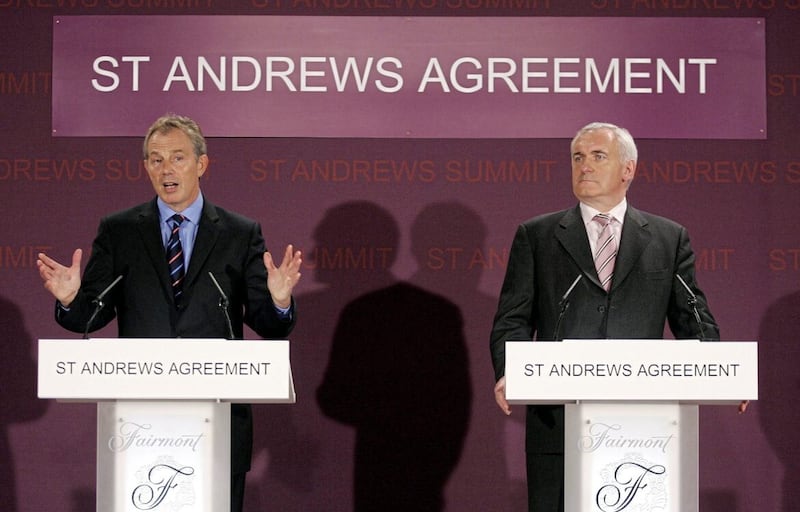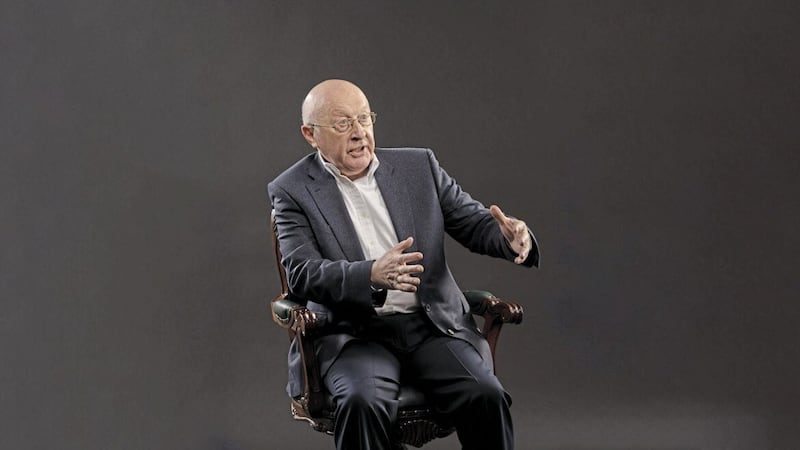No, Alex, the fundamental point of your argument – “The reality, of course, is that the DUP and SF worked very closely together to make power-sharing impossible” – is based on an entirely false premise, namely the notion that the DUP ever wanted to share power with any nationalist or republican party.
Alex Kane: The DUP and Sinn Féin are both to blame for killing off power-sharing
There’s also a fundamental concept missing from your argument which would help to explain the behaviour not only of the DUP but of unionism as a whole. That fundamental concept is equality.
After all, the UUP could have had a power-sharing executive with the SDLP at any time in the 25 years from 1973-98 but they refused because they would have had to treat the SDLP as equals. The SDLP demanded equality. The SDLP’s Michael Canavan from Derry used to say: “Just keep beating unionists over the head with equality. They can’t give it but they can’t refuse it.”
Instead, unionists have to invent absurd pretexts to avoid equality. Unionism came into being to avoid living on equal terms with the rest of the people on this island. Having failed to achieve that goal across the island as a whole, unionism retreated to their north-eastern laager and used all and every means to deny equality in anything to nationalists.
Read more:
- Brian Feeney: The north has always been an artificial construct, a place apart from Britain
- Brian Feeney: United Ireland needed to end north's permanent state of crisis
- DUP's strategic blunders reminiscent of 1920s Sinn Féin – Cormac Moore
You’re wrong too about the St Andrews Agreement. Going on about the mechanics of electing first and deputy first ministers misses the point. The point is that the DUP stupidly thought they’d always be the majority in any assembly and would be able to pretend first minister could lord it over the deputy first minister, whereas in fact their powers and status are – that dreaded word – equal. The DUP also wanted the new system for electing FM and DFM so that they would not have to vote for Martin McGuinness.
There’s another fundamental aspect of the St Andrews Agreement you missed, Alex, which reinforces the point about the DUP’s efforts to deny equality to Sinn Féin. It’s what former DUP adviser Richard Bullick called “the core DUP policy” designed to limit the power of individual (SF) ministers and give the executive an “expansionist” authority to block their decisions.

Arlene Foster boasted the DUP could veto any SF minister initiating any policy the DUP disliked. There was uproar in July 2020 when Foster pushed through the Executive Committee (Functions) Bill giving more power to individual ministers. Bullick strongly objected to the bill. Eleven DUP MLAs rebelled against Foster, who mistakenly believed that any three ministers could call a major decision into the executive and veto it. Needless to say, SF strongly supported the bill since it is SF policy.
Foster let the cat out of the bag in 2015 when she was left as the only DUP minister after Peter Robinson withdrew the others in a political crisis after the murder of Kevin McGuigan. Foster proclaimed disgracefully she was “gatekeeper” to ensure that “rogue SF or renegade SDLP ministers” don’t “take decisions that will, let’s be honest, damage the unionist community”.

In short, the only basis on which the DUP entered an executive was that they could avoid living on equal political terms with SF. Even so, there was a split in the party with objections to devolving policing and justice powers from some of the same characters who now resist re-entering the executive.
The difference is that in 2006, one gulder from Paisley brought them scurrying back into line. Nevertheless, it took an ultimatum from the then proconsul Peter Hain to take up their positions by March 26 2007 or else he and Dublin would adopt Plan B.
Read more:
- Alex Kane: The problem with Northern Ireland is that there is no solution
- Alex Kane: How can trust in our politics be restored?
- Arlene Foster's idea of a referendum on Stormont reform deserves discussion – Newton Emerson
It should also be recalled that the DUP successfully avoided another symbol of equality they agreed at St Andrews, that is Acht na Gaelige, which they subsequently denied they’d signed up to.
No, Alex, SF and the DUP didn’t act together. SF acted to promote equality for all. The DUP acts to block equality for nationalists.










